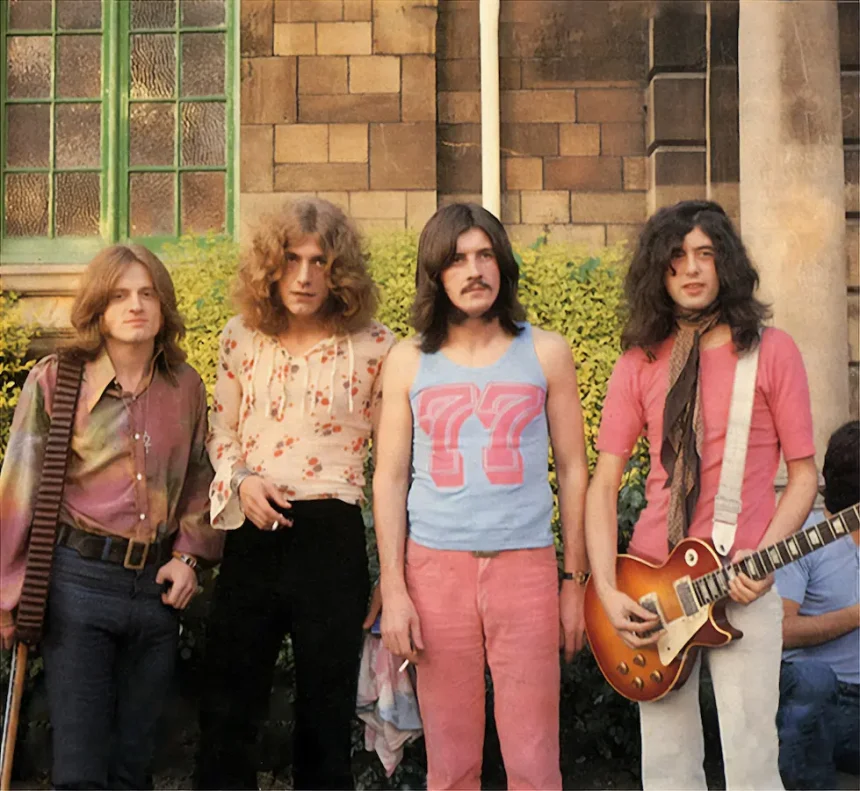Robert Plant — and by extension Led Zeppelin — owed a huge debt to Memphis Minnie, a pioneering female blues singer, guitarist, and songwriter, among others. Her influence may not always be in the foreground of popular rock histories, but it runs deep in Zeppelin’s music, lyrics, style, and ethos. Here’s a look at how Memphis Minnie’s legacy deeply shaped what Robert Plant and Zepp created, and perhaps why she deserves more credit.
Who was Memphis Minnie?
Lizzie “Memphis Minnie” Douglas** (1897–1973) was one of the greatest and most versatile female blues artists of the early to mid‑20th century. She recorded for decades (roughly 1908–1958), both guitar and vocals, across multiple blues styles.
She was known for her strong, expressive voice, her guitar skills (both rhythmic and picking), and her ability to write compelling songs that mix personal emotion, storytelling, raw blues feeling, and sometimes commentary.
Key points of influence on Robert Plant / Led Zeppelin.
1. “When The Levee Breaks”.
Perhaps the most direct line of influence is Led Zeppelin’s version of “When the Levee Breaks” (1971, on Led Zeppelin IV). The original was written and recorded by Kansas Joe McCoy & Memphis Minnie in 1929. Zeppelin used many of the original lyrics and adapted the structure, though with their own production, instrumentation, and sonic expandability.
Robert Plant’s vocal delivery in the Zeppelin version — the wailing, the echo, the sense of foreboding and emotional weight — echoes the original’s mood, while transforming it into a giant of rock. As such, Minnie is at least partially the source of one of Zeppelin’s most iconic pieces.
2. Blues authenticity in sound and approach.
Zeppelin (and Plant) drew heavily on Delta blues, country blues, and classic acoustic and electric blues traditions. Plant has acknowledged how much the Delta blues shaped the base sound of Zeppelin.
Memphis Minnie embodied much of that tradition — she learned it in the Deep South, played it raw, used a guitar in a very visceral, grounded way, wrote about flood, hardship, love, betrayal, working life. That kind of grounding in blues gave Zeppelin a wellspring to draw from.
3. Gender, performance, and expression.
While this is more subtle, Minnie showed that a blues artist didn’t have to fit a narrow role. Her powerful voice, her assertiveness in songwriting, her ability to play guitar and front songs — all of these were less common for women in her era. By singing of struggle, longing, heartbreak in a forthright way, she set a template for emotional authenticity. Robert Plant, throughout his career, has often been praised (and occasionally critiqued) for his emotional expression, his ability to move between vulnerability and power — traits that trace back into the blues tradition.
4. Songwriting, borrowing, adaptation.
Blues tradition is one of borrowing, reinterpreting, riffing off existing songs. Zeppelin did this a lot (sometimes leading to legal issues). For example, their use of lyrics, riffs, or ideas from older blues songs, sometimes without initial credit. Memphis Minnie’s “When the Levee Breaks” is a clear case.
A modern understanding of this tradition shows that instead of seeing borrowing as purely theft, there is a continuum: inspiration, homage, adaptation. But Minnie’s work is one of the sources in that continuum, especially for Plant’s interest in old blues recordings, lyrics, and stories, which then get refracted through rock.
Why perhaps she doesn’t always get full credit — and why that matters
Part of the reason is historical neglect: many female blues artists, particularly Black women from the early 20th century, have been under‐documented, under‐paid, and under‐recognized. Their names don’t always appear in liner notes or popular accounts.
Also, rock historiography often privileges the “heroic” male figure (guitarist, frontman) over earlier artists, especially women and Black artists, whose influence was appropriated or built on but not always acknowledged to full degree.
Robert Plant and Led Zeppelin stand on the shoulders of giants, and Memphis Minnie is among the most important of those. Her song *“When the Levee Breaks”* provides a direct musical link. Her voice, her songwriting, her guitar playing, her emotional truth all helped shape the language that Plant speaks in his singing. To recognize how much Zeppelin owed to her is to acknowledge a deeper, richer lineage in blues and rock — one that includes sometimes overlooked women whose art helped open the doors others walked through.
If you like, I can explore how other female blues pioneers (e.g. Sister Rosetta Tharpe, Bessie Smith, etc.) also shaped Plant’s style.







